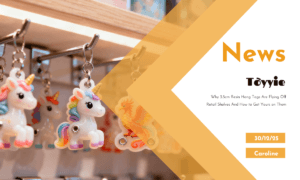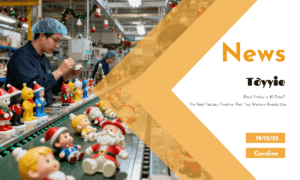Quality Assurance
Before proceeding with mass production, toy manufacturers must assess the quality of materials and craftsmanship. Sampling allows manufacturers to closely inspect toy prototypes, identifying any potential defects or issues early in the process. By doing so, manufacturers can ensure that the final products meet stringent quality standards and avoid costly mistakes during mass production.
Prototype Testing
Toy sampling provides an opportunity to test the functionality and durability of prototypes. Manufacturers can subject the samples to various tests to evaluate their performance and reliability. This process helps identify any flaws or areas for improvement in the design or construction of the toys, ensuring that they meet safety standards and withstand the rigors of play.
Customer Approval
Obtaining approval from clients or customers is crucial before proceeding with mass production. Sampling allows manufacturers to present toy prototypes to their clients for review and feedback. This feedback can then be incorporated into the toy designs, ensuring that the final products meet customer expectations and preferences.


Cost Control
Sampling plays a crucial role in cost control in toy manufacturing. By identifying and addressing manufacturing issues or design flaws early in the process, manufacturers can avoid costly mistakes during mass production. Making changes during the sampling stage is typically more cost-effective than making changes after mass production has begun, helping to keep production costs in check.
Market Testing
Sampling also serves as a valuable tool for market testing. By producing samples and gauging customer feedback, manufacturers can assess the potential demand for the product and make informed decisions about production quantities. This helps minimize the risk of overproduction or underproduction and ensures that production aligns with market demand.
Why Sample Costs Are Much Higher than Mass Production Prices?
Behind the relatively high costs of samples, there are a series of complex factors and cost structures that collectively impact the cost of sample production. Let’s delve deeper into why sample costs are much higher than mass production prices:
1 . Customization Requirements
Samples often need to meet the personalized customization requirements of clients. Clients may demand specific materials, colors, sizes, or special craftsmanship. To meet these customization demands, manufacturers need to undertake additional custom processes and material procurement, which increases the cost of sample production.
2 . Handcrafting and Precision
Samples are typically handcrafted and require a higher level of precision and quality. Crafting samples may require more labor and time to ensure that each detail meets the client’s requirements and standards. In contrast, mass production often utilizes more automation and mechanization, reducing production costs.


3 . Experimental Nature and Adjustments
Sample production is often an experimental and iterative process. It may involve trying out multiple design or craftsmanship options to determine the final product design and production scheme. This experimental nature increases the cost of sample production because each adjustment requires additional time and resources.
4 . Material Procurement
Due to the relatively small quantity of materials needed for sample production, the procurement cost of materials may also be relatively high. Manufacturers may need to purchase materials in specific specifications or small batches, resulting in higher unit prices.
5 . Demand for Rapid Delivery
Clients may have high demands for the delivery time of samples, which may require manufacturers to work overtime or expedite production to meet client needs. Rapid delivery often increases production costs as it requires additional labor and expedited service fees.
A Friendly Reminder
In a nutshell, despite the higher costs of samples, they are crucial for the eventual success of products. Through sample production, manufacturers can meet clients’ customization needs, validate product design and quality, and provide important references and guidance for subsequent mass production, thereby reducing production risks and enhancing product competitiveness. Therefore, we emphasize the importance of sample production in toy manufacturing and encourage manufacturers to fully utilize the advantages of sample production in the product development process. Through meticulous crafting and testing of samples, we can provide clients with safer, higher-quality, and more appealing toy products, contributing to the development and advancement of the industry.









